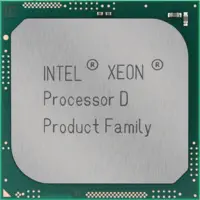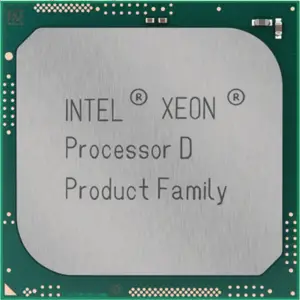From WikiChip
Difference between revisions of "intel/cores/hewitt lake"
| Line 2: | Line 2: | ||
{{core | {{core | ||
|name=Hewitt Lake | |name=Hewitt Lake | ||
| − | | | + | |image=broadwell de (front).png |
|developer=Intel | |developer=Intel | ||
|manufacturer=Intel | |manufacturer=Intel | ||
|first announced=February 25, 2019 | |first announced=February 25, 2019 | ||
| + | |first launched=April 2, 2019 | ||
|isa=x86-64 | |isa=x86-64 | ||
|isa family=x86 | |isa family=x86 | ||
| + | |microarch=Broadwell (Server) | ||
|word=64 bit | |word=64 bit | ||
| + | |proc=14 nm | ||
| + | |tech=CMOS | ||
|predecessor=Broadwell DE | |predecessor=Broadwell DE | ||
|predecessor link=intel/cores/broadwell de | |predecessor link=intel/cores/broadwell de | ||
Revision as of 15:13, 31 March 2019
| Edit Values | |
| Hewitt Lake | |
 | |
| General Info | |
| Designer | Intel |
| Manufacturer | Intel |
| Introduction | February 25, 2019 (announced) April 2, 2019 (launched) |
| Microarchitecture | |
| ISA | x86-64 (x86) |
| Microarchitecture | Broadwell (Server) |
| Word Size | 8 octets 64 bit16 nibbles |
| Process | 14 nm 0.014 μm 1.4e-5 mm |
| Technology | CMOS |
| Succession | |
Hewitt Lake (HWL) is codename Intel's single-chip dense low-power processors platform based on the Broadwell microarchitecture, serving as a successor to Broadwell DE. Hewitt Lake are aimed at lower power IoT, networking, and dense edge computing.
Hewitt Lake parts are branded as Intel Xeon D-1600 series processors.
| This article is still a stub and needs your attention. You can help improve this article by editing this page and adding the missing information. |
Facts about "Hewitt Lake - Cores - Intel"
| designer | Intel + |
| first announced | February 25, 2019 + |
| first launched | April 2, 2019 + |
| instance of | core + |
| isa | x86-64 + |
| isa family | x86 + |
| main image |  + + |
| manufacturer | Intel + |
| microarchitecture | Broadwell (Server) + |
| name | Hewitt Lake + |
| process | 14 nm (0.014 μm, 1.4e-5 mm) + |
| technology | CMOS + |
| word size | 64 bit (8 octets, 16 nibbles) + |